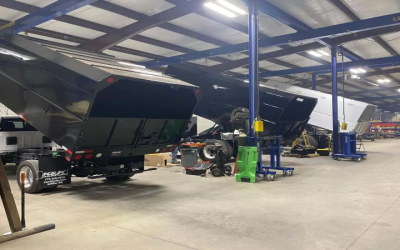A magnetometer is device designed to measure the strength and direction of magnetic fields, whether that field is generated by an individual magnet or by the Earth itself. Magnetometers function like traditional magnetic compasses, showing which way the field flows just as a traditional compass needle points north. But a magnetometer also has the added ability to show how powerful the field is at any given location. These devices are commonly used in mobile electronic devices to determine orientation.
The Use of Magnetometers in Navigation
While magnetometers can be used as stand-alone devices, they are often incorporated into larger equipment bundles with items such as heading reference units. These are frequently installed in unmanned vehicles that navigate without the use of GPS. Since they don’t depend on GPS and instead use the on-board system of gyroscopes, accelerometers, and magnetometers, these devices are commonly integrated into military applications where the reduced threat of jamming is a tremendous asset.
This freedom from GPS dependency also means that magnetometers have been tapped to develop indoor navigation systems. In 2012, a team at the University of Oulu in Finland released a smartphone app that used the localized variations in the Earth’s magnetic field to provide interior mapping. With a basic sketch of the facility installed on his or her phone, a user simply had to walk the grounds with the app set in ‘record’ mode. The magnetometer in the phone recorded the fluctuations in the Earth’s magnetic field, and tied them to the map. After that, anyone else who used the app in that location would be able to see where he or she was in relation to the map. In effect, this clever use of magnetometers already installed in phones allowed users to bring the functionality of GPS indoors.
Other Uses of Magnetometers
Magnetometers are heavily used in environmental industries, whether as a geological mapping and surveying tool or in assistance of a drilling operation. (They are especially useful in directional drilling, which is the practice of drilling non-vertical wells.) They are also used to locate sunken ships and uncover archaeological sites. Anything that is buried or submerged is potentially uncovered with a magnetometer and a knowledge of what the standard make up of the local terrain should be.
In what may be considered more mundane applications, magnetometers are used in metal detectors and in stud finders to help avoid pipes and electric wiring. They can aid a mobile device’s GPS by providing a heading to complement the GPS’s location data. In short, anything that may normally use a magnetic compass or magnetic field recognition probably can or already does use a magnetometer.


